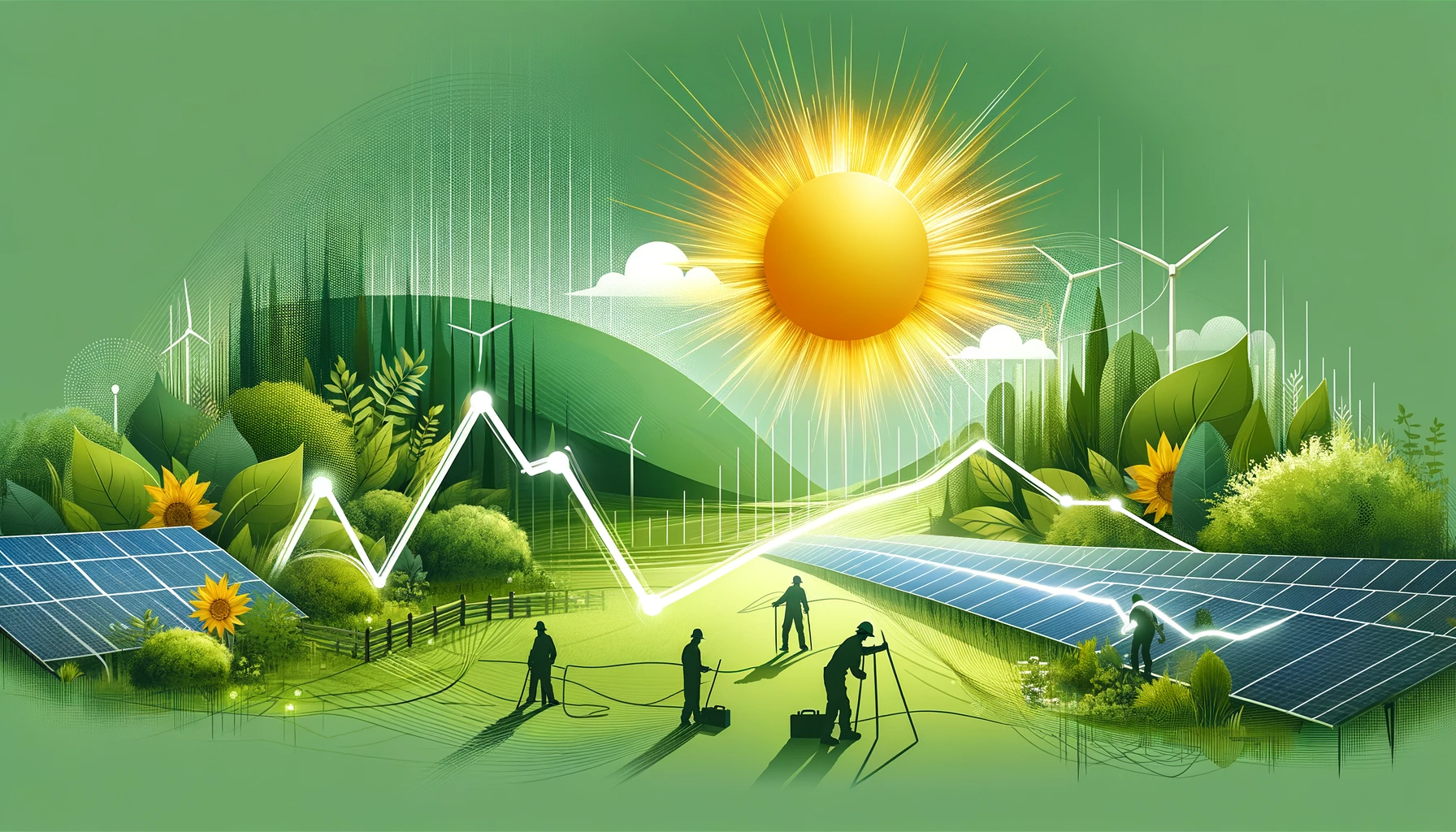The Rise of Solar, the Fall of its Price, and how Eedama is helping.
Are you looking for some good news in the middle of multiple crises affecting the planet and its humans? Here comes the sun!
Solar Power: A Steady Decline in Costs
Photovoltaic solar energy has experienced a mind-blowing cost reduction trend over the last decades. Such as, the cost of solar photovoltaics (PV) modules has decreased tenfold in just ten years. Moreover, the lowest electricity prices have recently been surpassed once again by a solar PV plant. Achieving 0.05 USD/kWh (Lazard, Levelized Cost of Electricity 2022).
The Middle East Leading the Way in Solar Projects
Utilities companies eager to introduce more clean energy in their portfolio typically issue tenders for large Sun-powered projects, which are then built in response.
However, The Middle East has been particularly aggressive in this regard. Such as, the recently inaugurated Al Dhafra solar project (2023) is now the world’s largest single-site solar PV plant. This project, in turn, has the capacity to generate 1.5 GW of clean sunlight electricity. Which is equivalent to 1.5 nuclear reactors or nearly 3 million tons of CO2 emissions per year!
It dethroned the Noor Abu Dhabi project (1.2GW), and competes with the largest single-site solar park project under construction in Dubai: Mohamed bin Rashid Al Maktoum (MBR) Solar Park, with a planned capacity of 5GW at completion in 2030. It is delightful to see that the rivalry between the two powerful Emirates is benefiting clean energy deployment!


A Global Shift Towards Clean Energy
This is just one example of the global advancements of clean energy in the world today. On the Old Continent as well, fossil fuels are losing ground. For instance, the final remaining coal power plant in the UK will be closing down later this year (2024 or 2025), as the country fulfills its pledge to ban coal use. Consequently, this will mark Britain as coal-free for the first time since it began using coal-fired power stations during the Industrial Revolution in 1882.
The Bigger Picture: Beyond Solar Energy
Solar photovoltaics is just one way to produce clean energy and clean energy is just one lever humanity has to build a sustainable future. Waste management, fossil-fuel-free transportation, sustainable agriculture, and urban planning and architecture all play a crucial role. Additionally, understanding the social aspects of balanced and sustainable global development is crucial for achieving long-term success in sustainability efforts.
How Eedama is Contributing to a Sustainable Future
What is corporate social responsibility in this matter? What are the start-ups shaping the future?In our consulting practices, curricula, and trainings, Eedama addresses all these issues, adapting them for all audiences, from school kids to NGOs and corporate decision makers.
We cannot encourage you enough to come, see with your own eyes, understand and act by joining one of Eedama’s field trips in the region.
NOTE: (Article 1st written in 2021and updated in 2024)
